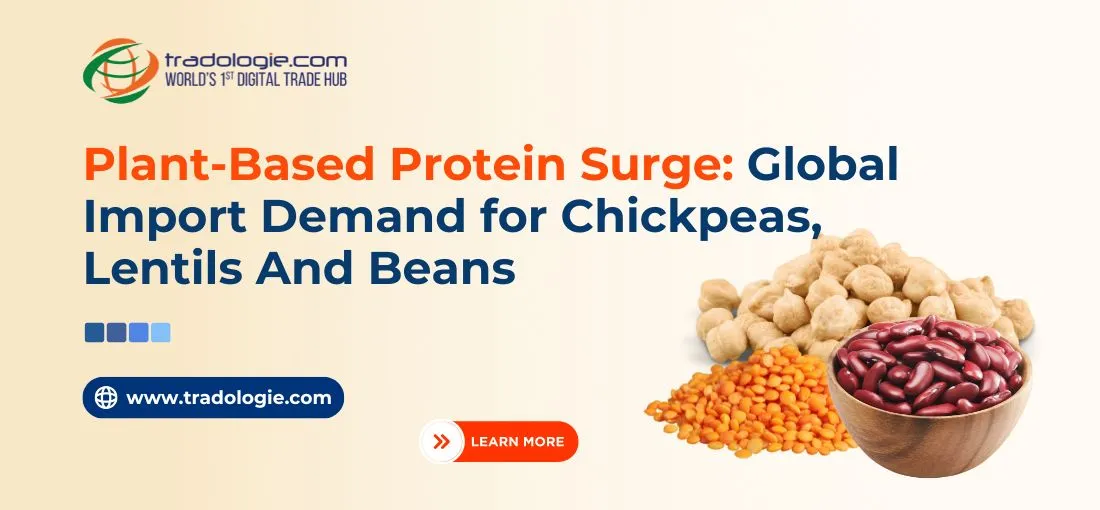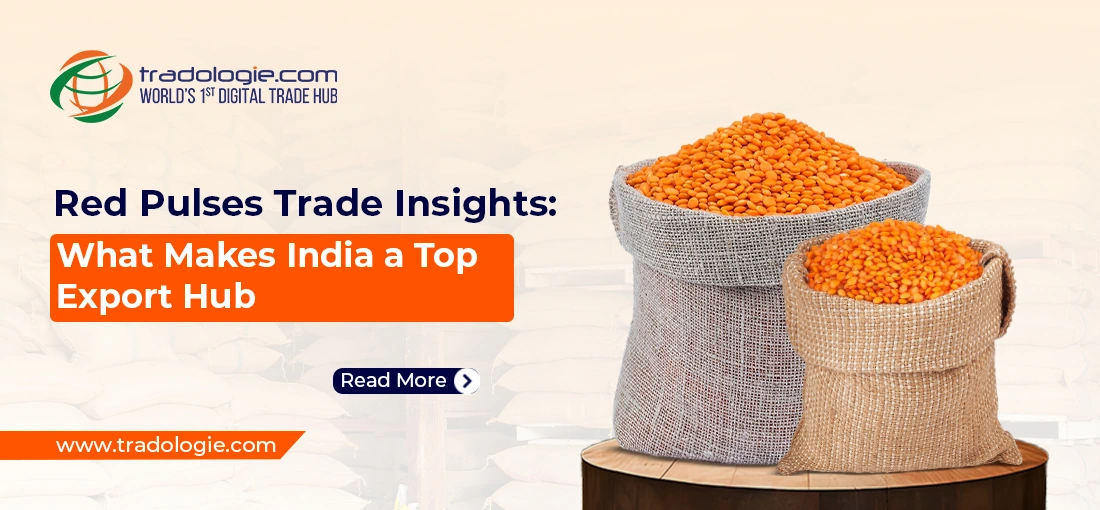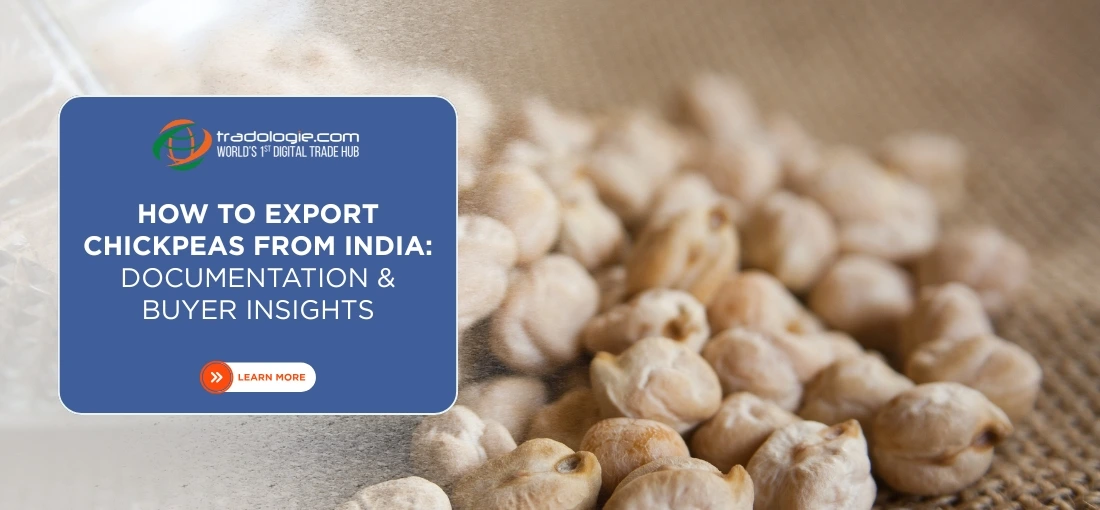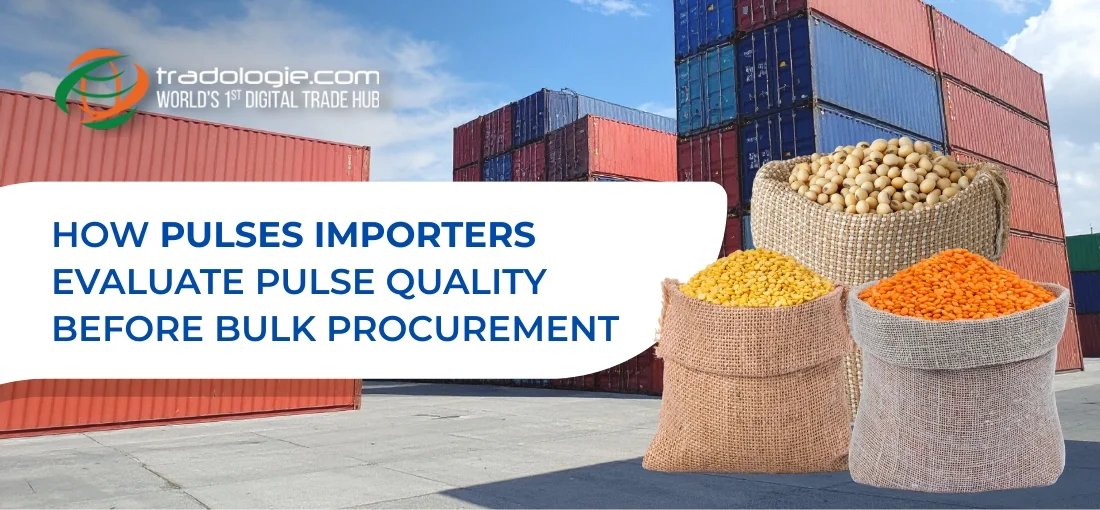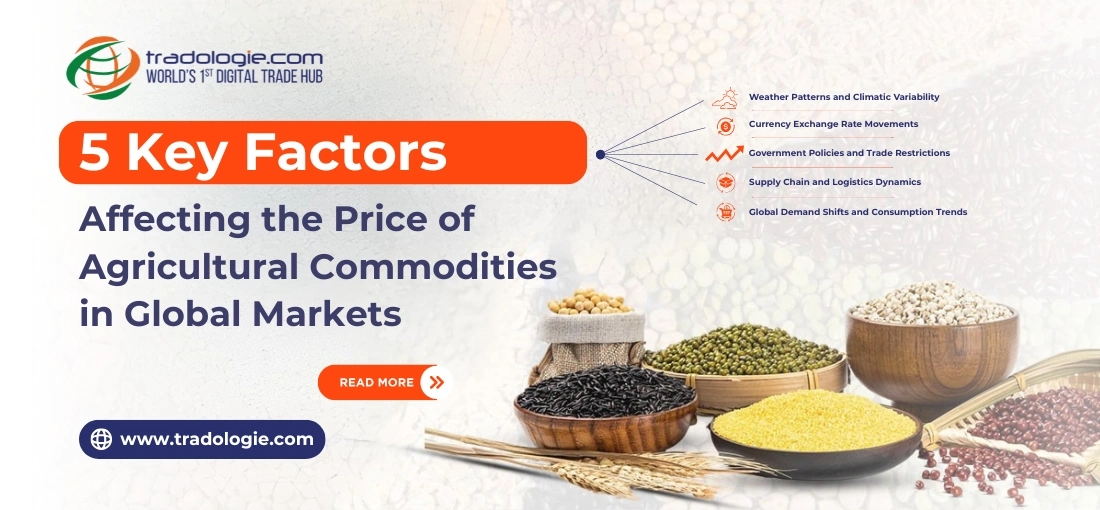Plant-Based Protein Surge: Global Import Demand for Chickpeas, Lentils And Beans
The demand for plant-based protein is experiencing growth globally. As health conscious consumers and sustainability driven food options become mainstream, pulses are gaining popularity as a source of protein in developing nations and as key components of plant-based products in developed countries.
The global pulses market is set for strong growth over the next decade, as its market value is expected to rise from USD 78.0 billion in 2024 to USD 135.2 billion in 2034, representing a CAGR of 5.7% during the ten-year period. The Increasing demand for plant protein foods, together with changing dietary choices among consumers, is stimulating the growth of the market on an international level.
In this blog we will explore the rising import trends, key global players, and how Pulses exporters can leverage the increasing appetite for plant-based proteins.
The Growing Demand for Plant-Based Proteins
1. Shifting Consumer Preferences:
This industry is rapidly growing as more consumers prioritize health, sustainability, and ethical eating. This shift is driven by::
- An increasing flexitarian and vegan population
- Increased awareness of sustainability and environmental issues.
- The emergence of functional foods with health benefits like better digestion and heart health.
2. Health Benefits and Nutrition:
As we already know that the Beans, lentils, and Chickpeas are rich in protein, fiber, and essential vitamins. According to United Nations Food and Agriculture Organization (FAO) reports , pulse crops (including chickpeas and lentils) help improve soil health and provide 30-40% protein content, and hence they are a good meat substitute.
Global Import Trends for Chickpeas, Lentils and Beans
1. Chickpeas (The Powerhouse of Plant Protein):
The global market for chickpeas is expected to grow at a CAGR of 5.2% during 2023-2028 (IMARC Group). Key importers of chickpeas are detailed below:
- India: India is the world's largest consumer, importing from Australia and Russia to meet domestic shortages.
- European Union: Demand has risen due to greater plant-based diets and Middle Eastern cuisine influence on food.
- United States: Imports chickpeas primarily from Canada and Mexico, dominated by hummus consumption.
2. Lentils (High Demand in North America and Europe):
The global lentil trade is witnessing strong growth, with the United States and Canada leading exports. Key import markets are :
- Turkey and Middle East: Heavy reliance on imports due to local production constraints.
- European Union: Rising preference for lentil-based protein sources in vegetarian and vegan diets.
- India: Largest consumer but also imports due to fluctuating domestic production.
3. Beans (Versatility Drives Import Growth):
Beans, such as black beans, kidney beans, and navy beans, have widespread demand due to their culinary versatility and nutritional value. Main importers are given below:
- China: The largest global importer, driven by rising middle-class health trends.
- Japan and South Korea: Increased adoption of plant-based diets is fueling demand.
- Latin America and Africa: Rely on imports due to inconsistent local production.
Opportunities for Exporters in the Plant-Based Protein Market
1. Quality Assurance and Certifications
Quality certifications play an important role in gaining the trust of global importers and ensuring compliance with global food safety regulations. Different countries have specific certification requirements that exporters must meet to access their markets. Some of the key certifications required in major importing countries are as follows:
- HACCP (Hazard Analysis and Critical Control Points): This certificate ensures food safety through hazard identification and control measures.
- ISO 22000: An international standard for food safety management systems.
- FSSAI (Food Safety and Standards Authority of India): This is mandatory for Indian exporters ensuring compliance with food safety regulations.
- BRC (British Retail Consortium) Certification: This is essential for exports to UK and European retailers.
- IFS (International Featured Standards): Required by European retailers to ensure food safety and quality.
- US FDA (Food and Drug Administration) Registration: Mandatory for exporting pulses to the USA.
2. Leveraging B2B Digital Platforms
Currently global trade is rapidly changing, and exporters need efficient solutions to stay competitive. B2B platforms like Tradologie.com facilitate a seamless way to connect with verified Pulses importers, eliminating the hassle of dealing with middlemen. These platforms facilitate real-time pricing, secure transactions, and transparent negotiations, making bulk trade easier and more profitable. By simplifying the export process, such platforms allow businesses to expand their reach and maximize their profits. Adopting digital trade solutions is no longer an option but a necessity for sustainable growth in the global market.
Conclusion
The growing demand for plant-based proteins like chickpeas, lentils, and beans offers a great opportunity for exporters. By implementing certified food safety practices, sustainable farming practices, and new-generation B2B trade platforms like Tradologie.com, exporters are able to effectively reach global Pulses importers, facilitate smooth transactions, and access the expanding market for plant-based protein foods. With the right approach and quality focus, companies can succeed in this new era of health-conscious food preferences and sustainability.

